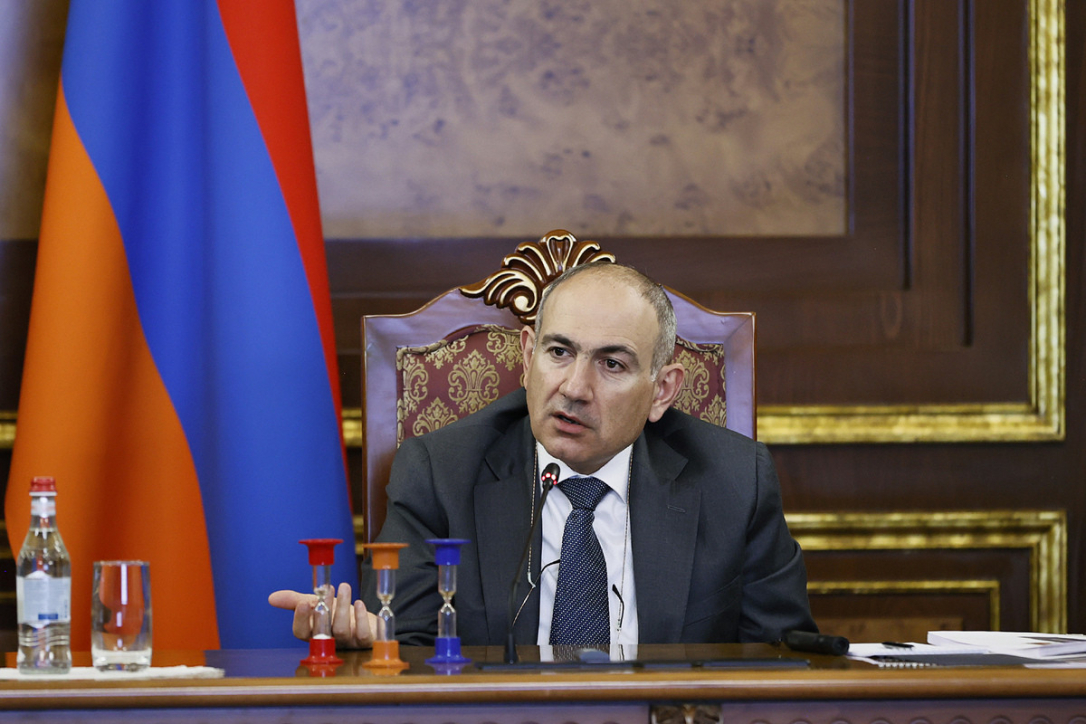Armenian Prime Minister Announces Readiness to Amend Constitution for Peace with Azerbaijan

Armenian
Prime Minister Nikol Pashinyan has expressed his readiness to amend the
country’s Constitution in order to conclude a peace agreement with Azerbaijan.
In his view, the current version of the Basic Law contains provisions that
allow for territorial claims, and their removal is a necessary step toward
stability and the end of the conflict. However, the date of the referendum has
not yet been determined.
In
March 2025, the parties had already agreed on a draft peace treaty. Yet the key
condition for its signing remains the amendment of Armenia’s Constitution,
according to Azerbaijan’s position. From Baku’s perspective, it is essential to
remove references to Nagorno-Karabakh from the preamble. However, in Armenia
this may trigger internal division, especially considering the mass protests in
2024 against territorial concessions, including remote villages in the Tavush
region.
It
should be noted that in August, at a summit in the White House, Pashinyan and
Azerbaijani President Ilham Aliyev signed a declaration under U.S. sponsorship.
The declaration envisions the creation of the “Zangezur Corridor” – a strategic
transit route through Armenia, under U.S. control for 99 years. The route was
named TRIPP (“Trump Route for
International Peace and Prosperity”).
Iran
and Russia have voiced serious concern over U.S. involvement in regional
processes, viewing the creation of the corridor as a threat to their influence
and regional stability. The United States is emerging as an active geopolitical
player in the South Caucasus, using a model of economic leverage and transport
projects. This weakens the traditional influence of Russia and Iran, while
opening the door for Armenia’s Euro- and Euro-Atlantic orientation.
Analysts
note the lack of detailed work on security and customs aspects of the project,
as well as the legal status of the corridor and Armenia’s access to Azerbaijani
territory. These gaps could derail the peace agreement, even if constitutional
amendments are pursued.
The
introduction of a new Constitution will require a referendum, which Armenian
society may perceive as external pressure. The issue of Nagorno-Karabakh remains
particularly sensitive – as a symbol of national identity. Any changes related
to it may provoke sharp discontent and protests.
Pashinyan’s
statement of readiness to amend the Constitution signals a key compromise. Yet
its implementation represents a delicate balance between the external necessity
of peace and internal political stability. The success of the initiative will
depend on subtle diplomacy, the public’s willingness to accept change, and the
government’s ability to manage the consequences – legal, social, and national.
 Latest news
Latest news Latest news
Latest newsRussia and Syria: A New Chapter in Relations After the Coup
16.Oct.2025
NATO and EU Join Forces to Build a “Drone Wall”
15.Oct.2025
Trump: New bonds of friendship to join Armenia to Azerbaijan
14.Oct.2025
UK to lift its arms embargo on Armenia, Azerbaijan
14.Oct.2025
Russia Opens New Criminal Case Against Opposition Figure Khodorkovsky
14.Oct.2025
Expert analysis by Tigran Khzmalyan: If Pashinyan wins again, Armenia will fall completely under Russia’s influence
14.Oct.2025
The Kremlin Warns the West of Dangerous Escalation: U.S. Plans to Supply Tomahawk Missiles to Ukraine
12.Oct.2025
Moscow Admits Guilt for Downing Azerbaijani Plane: Putin and Aliyev Show “Mutual Understanding of Authoritarian Allies”
10.Oct.2025
Kazakhstan to Fully Transition to Digital Governance: Tokayev Announces Creation of New Ministry
10.Oct.2025
State Duma Denounces Plutonium Disposal Agreement with the United States
09.Oct.2025

 20 Oct 2025
20 Oct 2025








